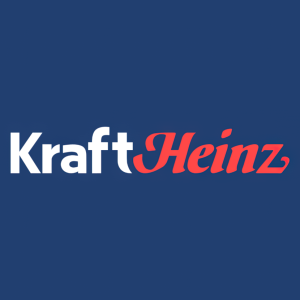Kraft Heinz Seeks to Reduce Carbon Emissions by Over 99% Across 10 U.S. Plants With Help from a $170 Million Investment from U.S. Department of Energy
- None.
- None.
Insights
The engagement of Kraft Heinz with the U.S. Department of Energy's Office of Clean Energy Demonstration represents a strategic move towards environmental sustainability, which is increasingly becoming a focal point for investors who are concerned with corporate responsibility and long-term viability. The projected reduction in annual emissions by over 99% from 2022 levels at 10 of the company's U.S. plants is a testament to the company's commitment to its net-zero target by 2050. This transition to clean energy technologies such as heat pumps, electric heaters and solar photovoltaic not only aligns with global efforts to combat climate change but also offers a competitive edge as consumers and investors alike favor environmentally conscious companies.
Moreover, the anticipated 23% decline in overall energy use and 97% reduction in natural gas use will likely translate into significant cost savings in the long run, despite the initial investment. These savings could improve the company's bottom line and potentially increase shareholder value. The reduction in total water use by 3% also demonstrates a holistic approach to resource efficiency. However, it is important to monitor the implementation of these technologies to ensure that the forecasted environmental and financial benefits are realized.
The adoption of a diverse range of clean energy technologies by Kraft Heinz showcases the company's innovative approach to decarbonization. The integration of anaerobic digesters and biogas boilers, for instance, not only reduces reliance on fossil fuels but also processes waste into renewable energy, creating a circular economy within the plants. The use of thermal energy storage can further enhance energy efficiency by balancing load and supply, leading to more stable energy costs.
However, the scalability and replicability of these technologies across different food and beverage manufacturers could be challenging due to varying operational demands and regional differences. It is promising to see that Kraft Heinz plans to use these sites as a model for future upgrades, potentially setting industry benchmarks. The creation of 500 construction jobs and the focus on skill development for employees suggest a positive socioeconomic impact, aligning workforce capabilities with future industry needs.
From a financial perspective, the federal funding of up to $170 million is a substantial capital influx for Kraft Heinz, which could mitigate the risks associated with the capital-intensive nature of clean energy projects. This funding could serve as a lever to attract further investment, both public and private, in the company's sustainability initiatives. Investors should note the potential for enhanced brand reputation and consumer loyalty as a result of these eco-friendly measures, which could drive sales growth.
However, investors should also be aware of the risks involved in the implementation of new technologies, such as potential delays or cost overruns. The long-term financial benefits hinge on the successful and timely execution of these projects. It will be important to track the progress of these initiatives and their impact on Kraft Heinz's operational efficiency and profitability. The company's engagement with entities like ENGIE for strategic consulting indicates a methodical approach, but the actual return on investment will be critical to evaluate in the coming years.
Funding marks the Company’s first selection for federal funding to focus on implementing clean energy projects, supporting its ambition of net-zero carbon emissions by 2050
“At Kraft Heinz, we’re on a journey to achieve net-zero greenhouse gas emissions by 2050,” said Marcos Eloi Lima, Chief Procurement and Sustainability Officer at Kraft Heinz. “This investment will give us critical resources to make necessary improvements in our plants to help increase their energy efficiency and reduce emissions. This investment recognizes our continued efforts to reduce our environmental footprint, and we’re eager to get started.”
Kraft Heinz will use the funds to install a range of technologies, including heat pumps, electric heaters, electric boilers, anaerobic digestors, biogas boilers, solar thermal, solar photovoltaic, and thermal energy storage. The Company anticipates the project will create an estimated 500 construction jobs across the 10 plant sites, providing opportunities for employees to receive additional training and develop new skills related to the new technologies.
“The infrastructure changes made at these 10 plants will allow us to replicate successful technologies and processes across our remaining
The 10 sites include
The project will significantly benefit these 10 plants by 2030, as estimated below (compared to 2022 levels):
-
Overall energy use after the implementation of energy efficiency measures, electrification and onsite generation will decline by
23% (from 1043 GWh/y to 801 GWh/year). -
Natural gas use will decline by
97% , with the remaining3% being used for standby equipment. -
Total water use will be reduced by
3% .
To develop the application, Kraft Heinz engaged ENGIE, a company that provides strategic consulting, global reporting and implementation support to corporations, governmental organizations, and municipalities on their net-zero journeys.
As part of the Company’s ongoing work with the
Learn more about Kraft Heinz’s broader ESG goals in the Company’s 2023 ESG Report.
About The Kraft Heinz Company
We are driving transformation at The Kraft Heinz Company (Nasdaq: KHC), inspired by our Purpose, Let's Make Life Delicious. Consumers are at the center of everything we do. With 2023 net sales of approximately
View source version on businesswire.com: https://www.businesswire.com/news/home/20240325069585/en/
Media Contact:
Chelsea Slaggert
chelsea.slaggert@kraftheinz.com
Investor Contact:
Anne-Marie Megela:
anne-marie.megela@kraftheinz.com
Source: The Kraft Heinz Company







